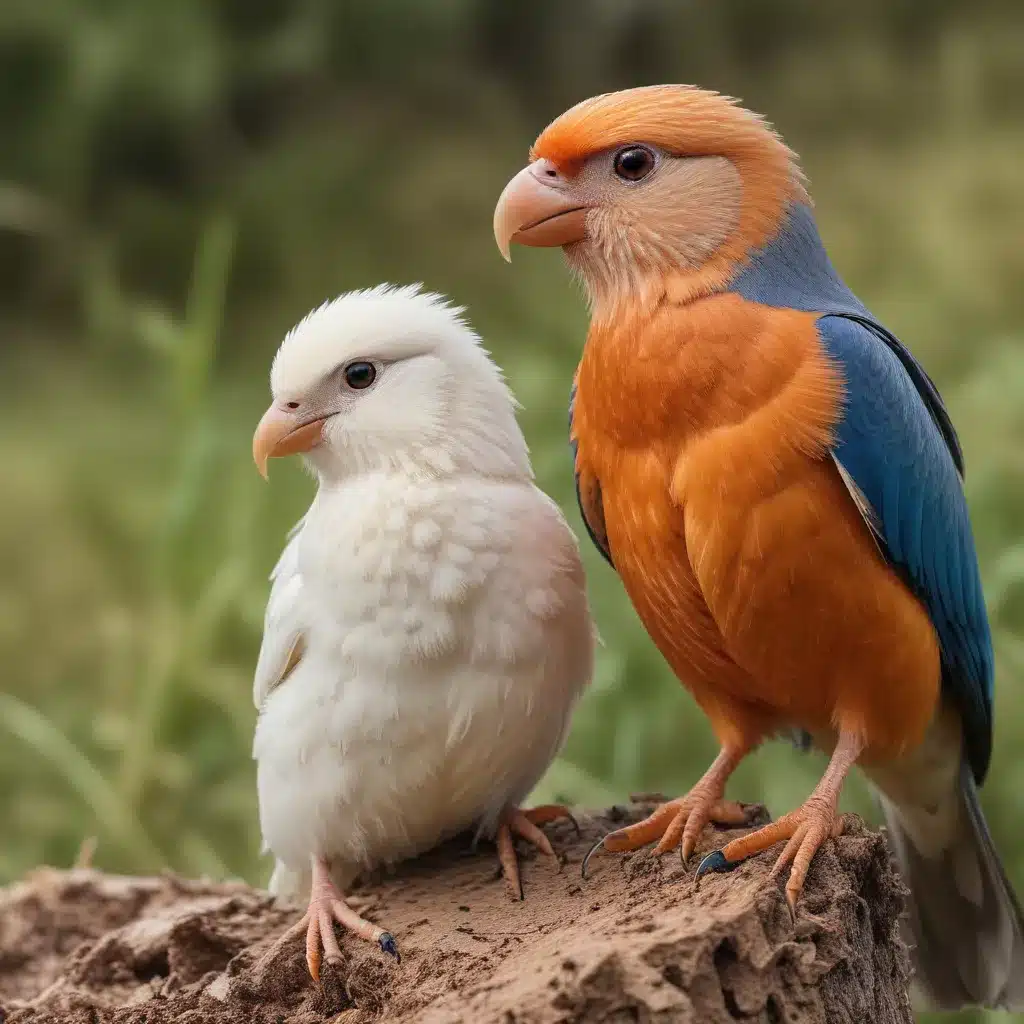
As an experienced avian caretaker and expert in the field, I’m thrilled to share my insights on the incredible world of ethically bred birds. These feathered ambassadors not only bring us boundless joy but also play a vital role in conservation, education, and inspiring deeper connections with the natural world.
Avian Species and Conservation
Native Bird Populations
Across the globe, we are witnessing the alarming decline of many native bird species due to habitat loss, climate change, and other human-induced factors. However, through responsible aviculture and collaboration with conservation organizations, we have the power to safeguard the future of these remarkable creatures. By supporting ethical breeding programs, we can help bolster wild populations and ensure the continued presence of these avian wonders in our ecosystems.
Endangered Species Protection
Some of the most captivating bird species are also the most vulnerable. Ethically bred birds from accredited facilities play a crucial role in protecting endangered species, acting as ambassadors to raise awareness and funding for vital conservation efforts. These programs not only preserve genetic diversity but also provide opportunities for reintroduction and rewilding, ensuring the long-term viability of threatened populations.
Captive Breeding Programs
Carefully managed captive breeding programs are essential to the survival of numerous bird species. By replicating natural habitats and implementing rigorous protocols, these facilities can produce healthy, genetically diverse individuals that can be responsibly introduced to the wild or serve as educational ambassadors. The knowledge and expertise gained from such programs are invaluable in informing and guiding real-world conservation strategies.
Ethical Breeding Practices
Responsible Aviculture
Ethical bird breeding is not just about producing healthy, well-adjusted individuals – it’s about fostering a deep respect for the natural world and a commitment to sustainable practices. Responsible aviculturists prioritize the well-being of their birds, ensuring proper housing, nutrition, and enrichment to meet the unique needs of each species. They also work closely with conservation organizations to align their efforts with global initiatives, contributing to the overall protection of avian biodiversity.
Habitat Preservation
Ethically bred birds often serve as ambassadors for their wild counterparts, drawing attention to the critical importance of preserving and restoring natural habitats. By highlighting the intricate connections between birds and their environments, these avian ambassadors inspire action and motivate people to support conservation efforts, from protecting key nesting grounds to advocating for sustainable land-use policies.
Genetic Diversity
Maintaining genetic diversity is a cornerstone of ethical bird breeding. Responsible aviculturists carefully manage their breeding programs to avoid inbreeding and preserve the unique traits and adaptations of each species. This not only ensures the long-term viability of captive populations but also strengthens the potential for successful reintroductions and reinforcements of wild populations.
Avian Welfare Considerations
Humane Housing and Care
Ethical bird breeding is not just about producing healthy, well-adjusted individuals – it’s about fostering a deep respect for the natural world and a commitment to sustainable practices. Responsible aviculturists prioritize the well-being of their birds, ensuring proper housing, nutrition, and enrichment to meet the unique needs of each species. They also work closely with conservation organizations to align their efforts with global initiatives, contributing to the overall protection of avian biodiversity.
Stress Minimization
Ethically bred birds are not just exhibition pieces; they are sentient beings with complex emotional and behavioral needs. Responsible breeders understand the importance of minimizing stress and providing a nurturing environment for their birds. From careful handling techniques to tailored enrichment programs, these measures ensure the physical and mental well-being of the birds in their care.
Enrichment Strategies
Captive birds require stimulating environments to thrive, and ethical breeders are at the forefront of developing innovative enrichment strategies. From introducing natural foraging opportunities to providing engaging cognitive challenges, these measures not only enhance the birds’ quality of life but also foster behaviors that are essential for successful reintroductions or educational outreach.
The Role of Ethically Bred Birds
Educational Outreach
Ethically bred birds serve as powerful ambassadors, inspiring wonder and sparking curiosity in people of all ages. Through interactive educational programs, these feathered representatives captivate audiences, fostering a deeper understanding of avian biology, behavior, and conservation needs. By connecting people with the natural world, these ambassadors help cultivate a new generation of environmental stewards.
Ambassadorship and Advocacy
Ethically bred birds often serve as the face of conservation efforts, drawing attention to the plight of their wild counterparts and the importance of protecting avian habitats. As living, breathing ambassadors, these birds capture the hearts and minds of the public, inspiring action and garnering support for critical conservation initiatives. Through their very presence, they serve as powerful advocates for the preservation of avian biodiversity.
Sustainable Tourism
Ethically bred birds also play a crucial role in sustainable tourism, offering unique opportunities for visitors to connect with nature in a responsible and enriching manner. From interactive exhibits to specialized eco-tours, these avian ambassadors provide a gateway for people to appreciate the wonders of the avian world while supporting conservation efforts and local communities. By promoting sustainable practices, ethical bird breeding programs contribute to the long-term protection of these remarkable creatures.
As an experienced avian caretaker, I’m honored to share the inspiring story of ethically bred birds and their role as avian ambassadors. These feathered representatives not only bring joy and wonder to our lives but also serve as powerful advocates for the preservation of avian biodiversity and the natural world. By supporting responsible breeding practices and embracing the educational and conservation value of these remarkable creatures, we can all play a part in ensuring a brighter future for birds and the ecosystems they call home.


